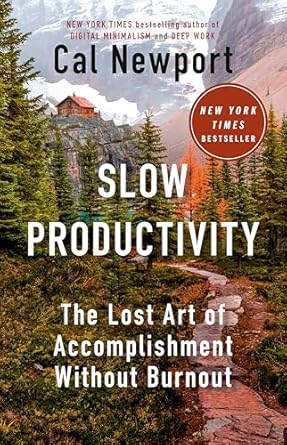
Do fewer things
It is easy to mistake “do fewer things” as request to “accomplish fewer things”. This is completely backward as doing fewer things makes us better at our jobs; not only physiologically but also economically and creatively. By focusing intensely on a small number of tasks, our brains could produce valuable output when we’re not rushing.
Limit the big: Focus energy on singular pursuit, stop attending never-ending round of conferences, meetings or workshops.
Limit missions: Reduce to 1-2 objectives per milestone.
Limit projects: Limit ongoing tasks to limiting overall work volume. Estimate how much time it require and then go find that time and schedule it on your calendar. Block off the hours as you would go for a meeting. You’re dealing with the reality of your time, not a gut feeling about how busy you are at the moment.
Limit daily goals: Work on at most one project per day. You still have meetings to attend, message to reply, administrative work to subdue. But when it comes to expending efforts on important initiatives, stay focused on just one per day.
Contain the small: Identify the administrative load, minimise the preparatory effort, you can contain the impact of the task itself (i.e automate partially / fully)
Put tasks on autopilot: Setup recurring specific tasks on specifics time and location. This is to remove spontaneous thought which ultimately reduce cognitive load to the brain to decide.
Make other people work more: Instead of allowing colleagues to effortlessly lob requests in your direction like hand grenades, they must do more work themselves before they can commandeer your attention. Create a reverse task list with tools such as JIRA, to keep people updated what’s on your plate, introduce process that require your colleague to do more work associated with a given task, such as agenda document, or work ticket.
Work at a natural pace
Schedule slow seasons: Arrange for major projects to wrap up before off season begin (a period where you would slow down). Take on low impact task but highly visible to temporarily deflect new work that comes to your way.
Work in cycles: Take a cooldown period, either weeks or days in between projects cycle (typically sprint) in which you can recharge while fixing small issues and deciding what to tackle next.
Work poetically: Assess your choices of physical spaces. Identify your personalised working environment. Form your own personal “rituals” around the work you find most important, for example take 20 minutes walk before start of the task.
Obsess over quality
Become a generalist: Understand your field, but also focus what’s great about other domains. It’s here that you can find a more flexible source of inspiration, a reminder of what makes the act of creation so exciting in the first place.
Start own Inklings: Forming a group of like-minded professionals, all looking to improve what they’re doing, provides a shortcut to improve your taste, an instantaneous upgrade to the standard of quality you’re pursuing.
Invest in quality tool: The power of quality tool is that it put you in a specialised mindset to signal the brain that you’re taking the pursuit seriously.
Balance obsession and perfectionism: Give yourself enough time to produce something great, but not unlimited time. Focus on creating something good enough but relieve yourself of the need to forge a masterpiece. Progress is what matters. Not perfection.
Bet on yourself: Simply placing yourself in situation where there exists pressure to succeed, can provide an important accelerant in your quest for quality. Push yourself to a new level without accidentally also pushing yourself into an unnaturally busy workload.